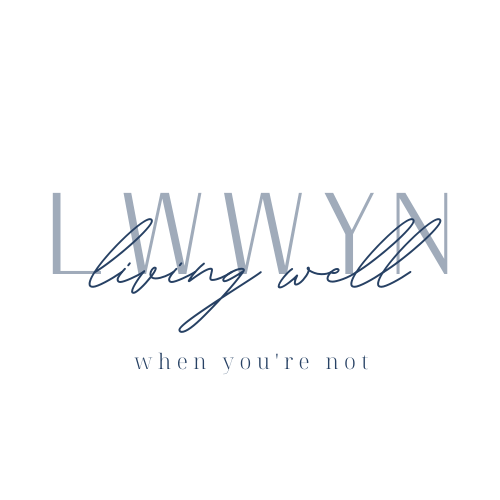Reimagine Your Life
House Flood - 2016
When you’re diagnosed with a chronic illness, doctors often tell you what to expect physically, but they don’t address the emotional upheaval that comes with the new life you will live. At first, I clung to the thought that my illness was just temporary and that I would get better. I went from doctor to doctor, hoping to find one with “the answer.” I tried new medications, changed my diet, meditated, and prayed. While all of these helped and sometimes eased my symptoms, I was still sick. I longed to be free from disease and live the life I had planned. It wasn’t until I realized that true freedom would come only when I decided to stop striving to be someone I’m not. It was disorienting to realize that the image I had of myself didn’t ring true anymore. Significant changes, good or bad, are threshold moments. How we cross these thresholds determines whether we are broken open or sealed shut.
I’m not in the camp of “everything happens for a reason.” But I do believe that every hurdle has something to teach us. In 2016, the river behind my house overflowed its banks in a 500-year flood. I had three feet of water downstairs and in the apartment where my elderly in-laws lived. Almost nothing was salvageable. I watched in stunned silence as my soaked furniture was tossed onto the lawn, appliances were rolled out on dollies, and the sheetrock was ripped out. The entire first floor was down to the studs in a matter of hours. As the damage restoration crew worked, friends and family emptied the kitchen cabinets and packed away what could be saved. I knew these were ONLY things and could be replaced. The heartbreak came when I saw the waterlogged photo albums, Christmas ornaments that my children made when they were little, and the storybooks that were so much a part of our family time. Miraculously, the men’s group from my church rescued most of my pictures. They painstakingly dried each one, and although they were a bit wavy, they were saved. A friend was with me when I opened the plastic bin of ornaments. Tears streamed down my face as I stared at the remnants of cherished keepsakes floating in water. She asked me to tell her the story of each one before we threw them away. I understood what she was doing. She was leading me to honor what was.
The next day, I was in the grocery store telling a friend about the flood. A lady overheard our conversation and approached me after my friend had left. She dug around in her purse and pulled out a little statue of an angel. She said, “I overheard your conversation and wondered if I could give this to you. I lost my home in Hurricane Katrina, and I want you to know that it will be all right no matter what happens.” Then, she pulled out a pen, drew a heart on the bottom of the statue, and signed her name. I have never forgotten her kindness or the wisdom that she shared.
I’ve thought of this experience often as I navigated my illness. Just like I reimagined my home, I’ve had to reimagine my life. My story about the flood taught me to grieve what is lost, to honor the memory of what was, and that people want to help. I mourn the loss of the predictability of my prior life and the ability to do all the things I enoy. I honor and love the life I once had. But just like the accidental renovation of my house, I have also renovated my priorities and let go of things that aren’t important. I am careful not to use energy on things that don’t really matter. The reimagining of my life has clarified what is most precious to me, and I know that no matter what, everything will be okay, even if it’s not.
Think of a time when you experienced a threshold moment that can help you find your way through your illness. What did it teach you?

